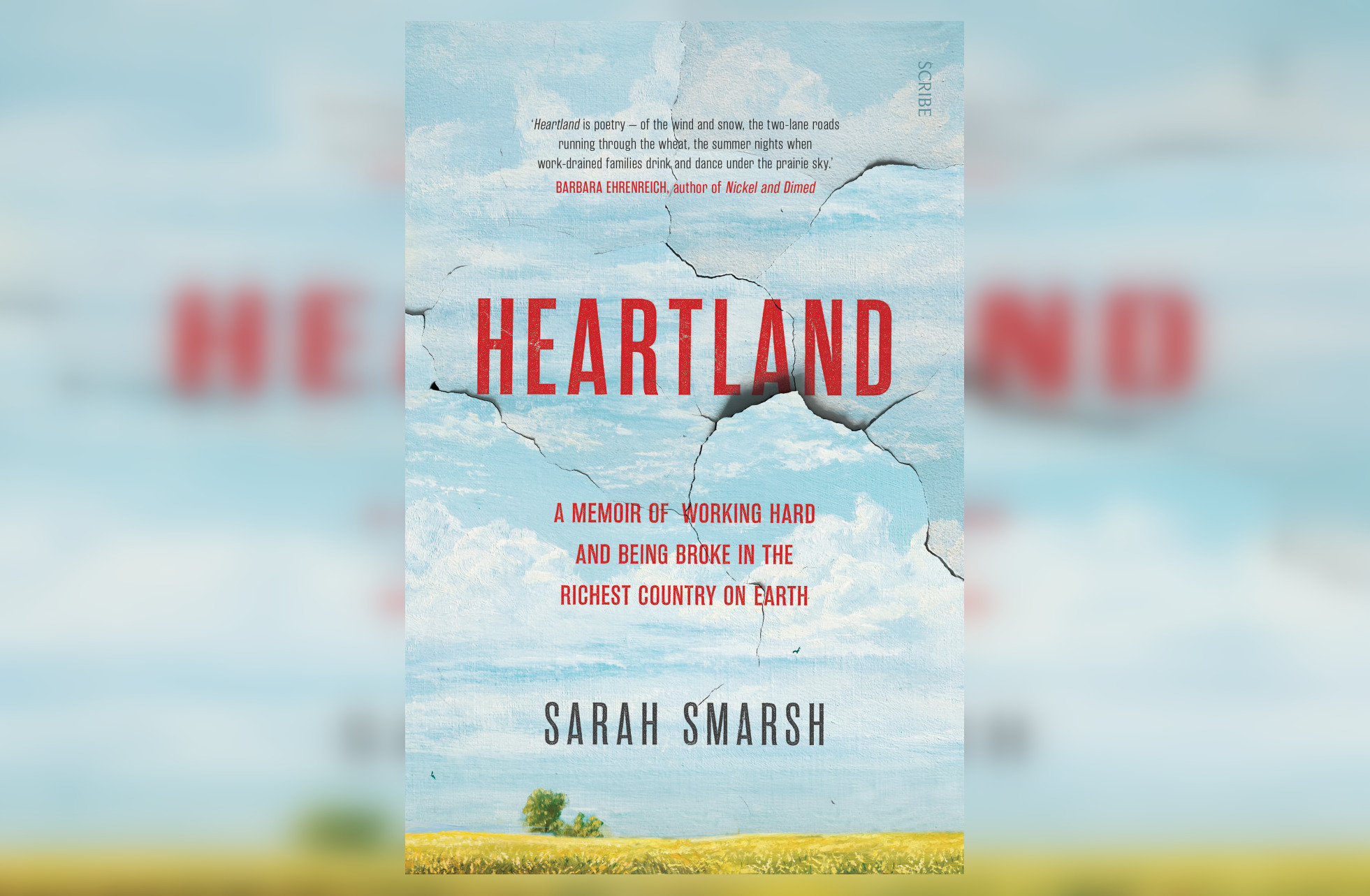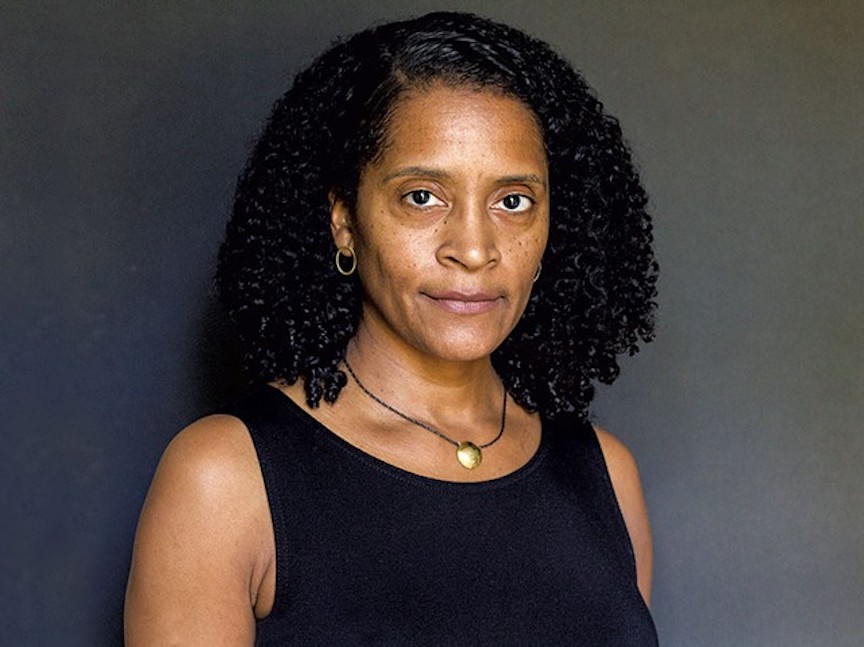The rest area on the northbound lane of California’s Highway 99 looked like the edge of a small city park. It had soda machines and bathrooms, picnic tables and a lawn. During the day, feral cats patrolled the grounds, darting between tables in search of scraps and retreating into the neighboring orchard, while a troupe of young maintenance men in reflective vests stabbed trash and swept leaves into dustpans.
At night, sedans mixed with minivans mixed with pickup trucks. In one grey four-door, an older, silver-haired man sat in the dark in the driver’s seat. Every so often, he put his hands to his head and gripped his temples, as if trying to calm an ache or silence unsettling thoughts in his mind. No other cars contained visible passengers; people were sleeping in their back seats or campers. Minivans and pickups are ideal for rest. Rest areas are not. Unless you’re encased in the protective metal of a big rig’s sleeper, you’re exposed.
Here in California’s rural San Joaquin Valley, farmland increases atmospheric moisture, and moisture condenses into what locals call Tule Fog. Tule Fog can cut visibility to as little as a foot in the span of seconds. Drivers can’t see lanes or other cars. Cars rear-end each other in massive pileups. On November 3rd, 2007, on this very highway, over one hundred cars and eighteen big-rigs slammed into each other in a fog bank between Fresno and Fowler. The crash killed two people and injured thirty-nine. In February 2002, two more people died in an eighty-car pile-up on Highway 99 between Selma and Kingsburg. Then there were the five people killed and twenty-eight injured in 1997 south of Sacramento on Interstate 5. This November night wasn’t Tule Fog, but mist hung from the trees as I eased into the rest area.
I was driving Highway 99 from Bakersfield to Sacramento on business. Dark fields stretched behind the rest area. Grass glistened with moisture, and the winter sky seemed poised to smother Stanislaus County with its wet wool. Semis’ headlights cut white cones of light as they coasted along the off-ramp and eased into parking spots between other semis. The trucks idled. Their engines went silent and headlights dark. In dormant mode, generators kept small running lights bright and powered TVs inside the sleepers. I was about halfway done with my long drive.
While most of us sleep, rigs with names like Bridge Transport haul onions and shiny tankers full of sloshing milk and rendered cow parts at all hours, day and night. When drivers rest, some park in truck stops. Some park along quiet roads near hotels or dirt lots. Others park in rest areas.
This one sits amid fields and straddles both sides of the highway. Each side is divided, half for car-parking, half for semis. On this night at 10:30 p.m., seven passenger vehicles were parked in the southbound side, and one long row of semis, eleven trucks deep, stretched across the lot. I got out to stretch my legs.
Juan was driving ten hours to Calexico, over 500 miles away. He’d parked in the middle of the lot between two dormant trucks. His idling engine filled the perimeter with a deafening noise. To speak, he leaned close and yelled in my ear. His truck had no payload. He was dropping off the tractor. “I take the truck out to the country,” he said. “I gotta drive it to the border, and somebody else take over. Take it south.” From Calexico, he would take a bus back home to Stockton. “Fourteen hours,” he said with a shrug.
He was born in Mexico. He wore a red and black flannel, had a wide round face and warm eyes webbed by deep creases. A thick moustache covered his lip. Before driving trucks, he worked at a cannery and picked tomatoes, peaches, oranges and grapes. “All kinds of fruit,” he said. “It was hard work. This is better work.” His two kids go to school in Mexico. They don’t want to drive trucks. “O.K., amigo. I gotta go.” When his truck pulled away, the lot fell silent, and ten semis remained. All had their engines off, many had visors pulled down over their windshields.
On the rest area’s northbound side, fourteen dark semis parked in a row. No drivers smoked outside them. No one paced around. In the narrow blank space between sleeping semis, a chilling noise arose. A deep guttural squeal. Something snarling.
Inside two darkened trailers, pigs fussed like captive demons, snorting and charging and clacking their teeth in internal disputes. The sounds escaped through the cars’ ventilation holes, and the barnyard stench of animal hide filled the air. Some pigs leaned their fat backs against the metal, filling the holes with tan tufts of hair.
In the Bible, demons came out of men and entered swine. Although I’m not religious, the way the Gospels describe it always stayed with me. Two men possessed by unclean spirits met Jesus as he arrived on the shore of Lake Gennesaret. The men lived in a cemetery, and their violent temperaments kept people from traversing the area. When they saw Jesus, they started screaming, “Why are you interfering with us, Son of God? Have you come here to torture us before God’s appointed time?” A herd of pigs was feeding in the distance. The demons begged Jesus, “If you drive us out, send us into the swine.” And Jesus commanded: “Alright, go!” So the demons exited the men and entered the pigs, and the whole herd, some two thousand of them, plunged down the steep hillside into the lake, and drowned in the water. The men tending the pigs ran to the city and reported what happened to the demon-possessed men. Then the whole town came to meet Jesus, and when they saw him, they begged him to leave them alone.
At 11:13 p.m., a truck pulled in and a woman emerged from the mist. She’d stationed herself somewhere in the grass, maybe by the building, maybe by a tree. I didn’t see. When the semi came to a halt, she approached the driver side. The driver declined and she walked back around.
I unrolled my window and rested my arm on the sill. “How you doing?” she said. Fine, I replied, and you? “You looking for company?” Hers was the sweet strained voice of a smoker who understood how to make a stranger feel special. She came over and stood by my window. Her name is Terry.
People call truck stop sex workers ‘lot lizards,’ but Terry rejects the moniker. “I call it work,” she said. “I’m at work.” She works this rest area almost every night.
Born in Modesto in 1960, she’s lived in a farm town most of her life. Short, with long stringy silver hair and roomy jeans, she clutched a brown purse against her side. She’s been selling sex since 1990.
“I had a real bad drug habit for about ten years,” she said. “I been clean for about six years, but that’s how I got into it in the first place. Now I’m still in it ’cause I need the money. I live with other people, I’m off the streets, but I lived in a tent for years, off and on for a long time. ‘That which does not kill us will only make us stronger,’ my grandma always said. I believe in it now. I always believed in it.”
Terry spoke quickly, running her thoughts together in brisk anxious sentences, as if a cop or new customer might interrupt before she had a chance to express them. When she laughed, she laughed a brief hesitant chuckle to which she only partially committed.
“I used to panhandle. I’d come out there, and I’d tell people, ‘I broke down, I need gas.’ Honestly, the guilt got to me. I’d lay in bed at night and think, Oh my god, how can you sit there and look these people in the eye and lie to them like that? Some people would dig in and give you the last five bucks they have believing your story, and I felt like a piece of shit doin’ it. I didn’t even want to face myself in the mirror, you know? Now, this might not be, as far as some people are concerned, a ‘better thing,’ but I can look myself in the mirror. I don’t feel guilty. I don’t feel like I’m lying or hurtin’ anybody. That’s just my thing. The guilt got to me. I couldn’t do it. I felt really─just dirty. You know what I mean? I just felt like a piece of crap. I see people out here doing it all the time, saying the same story. You’re not broke down in the same place that many times. I can tell by lookin’ at ’em.”
She got arrested for drug possession in her early thirties. While on parole, she worked the streets in Modesto. “I didn’t really care for it,” she said. The standard image of the American sex worker is a woman walking downtown, fishing for johns while keeping an eye out for police. But on city streets, Terry explained, menacing pimps demand big cuts. Territorial disputes flare up with other women. Crime is common, people are unpredictable, and everything gets done in the gaps between police patrols. Without her own car, Terry needed to stay in Modesto after her arrest, so she could ride the bus to the probation office. When probation ended, she moved back home and started working rest areas.
“There’s a lot of crazy stuff out there,” Terry said through a grin. “I’ve seen a lot of crazy stuff. Working out here it’s a lot different than working on the streets, ’cause out here it’s just truck drivers. They just want something till they get home.” Besides crime and pimps, she encountered men in town so desperate and perverted that the only way they could have sex was to pay for it. “They’re usually so butt-ass ugly or got weird fetishes or something,” she said. “You just don’t know. I feel safer out here anyway.”
Back in the early ’90s, local rest areas were also lucrative. Five or six women would work this one, and they’d all make money. “Now I’m out here by myself,” she said, “barely making enough. It’s hard.”
Terry makes an average of twenty to forty dollars a night. She doesn’t work set hours. She stays until she makes enough. Often that means arriving after sundown and going home as late as 4 in the morning. Tonight she caught a ride with a friend around 9 p.m. It was nearing 11:30, and she hadn’t made a thing.
“I have some dates that I’ll still make a hundred dollars off of,” she said, “or make fifty off of, but not for the most part.” Nowadays, she does about one or two dates a night. She stays, in her words, “However long it takes.”
Early Valley towns like Visalia and Hill’s Ferry had brothels, where women sold sex to miners, ranchers and cowboys. Now the sex industry has moved online and to big city streets, and, in some cases, it endures in the margins of the wheeled freight industry, hidden here in shade of rest areas and truck stops, where drivers have taken over the work of hauling food and materials that steamships used to haul on the rivers.
New state regulations have cut into truckers’ profits. “They have to have all this catalytic converter and everything,” Terry said, “put fourteen thousand dollars into their truck to get it up to spec to even come in to California, with emissions and everything. It’s outrageous.” Changes in trucking have affected her income.
Truckers used to park here for two or three hours and leave. California law now requires they park their vehicles for ten-hour blocks of time. The hope is that if trucks remain idle, drivers will sleep. Left to their own devices, many long haul truckers drive as long as they can, trying to reach their destinations more quickly in order to get maximum pay, and add additional jobs to their schedule. To do this, some avoid scales. Some forge logbooks or run two separate books. They push themselves to stay awake longer to drive further, and when they do, they fight fatigue with coffee and cigarettes, and sometimes amphetamines. The state law is designed to reduce risk.
With trucks parked for ten hours, there are fewer available parking spaces, and Terry sees fewer customers. At ten to thirty dollars a date, she needs a high turnover. Volume is one problem.
The way truckers find sex has changed, too. Drivers search Craigslist personals, use call girls or other online channels. “You don’t even get on the CB radio anymore,” Terry said. “I used to be on the radio all the time, talking to ’em. Half of ’em don’t even turn on the radio, and a lot of ’em can’t speak English anyway.”
She brushed her hair from her shoulders and clutched her purse. “I think who’s ever making these rules in Congress needs to get out from behind his desk and get in a truck for about a month and ride around and see what it’s really like. I bet he’d change his mind about a lot of the rules.”
In 1992, she met a trucker here who became a regular. “He’d come down and see me all the time,” she said. “I have a lot of repeat customers. I got some guys I’ve been dating ten or fifteen years. I’m good to ’em. I don’t steal. Because that’s a big thing, too. A lot of guys take me to their house. If they’re married, I will not go into the bedroom. I will not get into anybody’s business. I won’t step over that line.” She married this guy in ’93, moved with him to Texas for six years and drove a truck with him for two. Then she came to what she calls her senses and came home. “He was cheatin’ on me. It was just all bad. I didn’t know I was gonna be wife number five. I didn’t know he was still married. Guys can be really dirty, you know what I mean? They can run a game on you and you don’t even know. I didn’t realize someone can lie so much. I’m not that stupid normally, but stuff happens. You know?” She laughed her nervous laugh. “I mean, come on.”
When she moved with him to Texas, she didn’t have anything to lose. She was young, using drugs, and she’d abandoned traditional employment. She thought her life could only improve. “But I’m back to doing the same thing again,” she said. “My bills don’t stop, so. It’s hard to get a job out here. People that have a job need to hold on to it and respect it, ’cause it’s hard to come by.”
Back in the Valley, she kept using drugs and ended up homeless, living in a tent for a few years. “It is hard when you’re out there to get ready to get a job,” she said, “have the right clothes, have the right everything. Not that it’s a copout, but alotta times it’s hard to get a job when you’re on the streets.” Despite her rapid speech, she stood perfectly still when she spoke. “I tell a lot of my friends that are homeless, ‘Get a job driving a truck. You have your house with you. You got a place to sleep. You get to drive around the country all this time.'”
Her ex-husband died a few years ago, and she hasn’t worked anything like her old bookkeeping jobs since 1998. She sells manual and oral sex mostly. She will have intercourse, but not anal. “I’ve got five rules I don’t do no matter what,” she said. “I don’t do women at all. I don’t do black people at all. I won’t let you kiss me. I won’t let you go down on me. And I won’t let you do butt stuff.”
Terry smiled when I asked about the rules. “Like I said, I can look myself in the mirror every day. There are certain things I have to save so when I’m not work, if I’m at home ─ you know what I mean, it’s not work-related ─ like someone going down on me. I just won’t do that, because that’s something that means a lot to me.” A huge semi’s breaks hissed, and she shifted her weight to her other leg. “I’d make a lousy lesbian, huh?”
A lot of men ask her to do anal. “I tell ’em, ‘Yeah sure, you first.’ Then they change their mind. You go first and see how you like it!”
Four of those rules made sense to me. I asked about the one that didn’t. “It’s just─I don’t know,” she said. “I think God make ’em black and us white so we can tell the difference so we don’t interchange. I’ve just never been that close with black people. I met a lot of black people in Texas that were very, very, very prejudice ─ more prejudice than we are. Then I have a lot of friends that are black. I don’t date any of my friends at home. That’s that, and this is work. My brother teases me all the time. I’ll say I gotta go to work, and he’ll say, ‘Why do you say you’re going out to work?’ I say, ‘What do you want me to say? I’m going to go out and hustle?’ I just say I’m going out to work. It’s work. It can be a lot of work sometimes.”
She was wrong about race but right about work. Prostitution is work. I told her I agreed that prostitution was a legitimate and respectable form of it. Terry nodded. “We both know what’s going on before,” she said. “It’s not like I’m puttin’ a gun to their head.”
We talked about how outlawing prostitution doesn’t squelch demand. It just forces women to work seedy areas while they dodged police and creeps. Here, she’s her own boss. The profits are smaller and volume lower, but she makes her own hours and keeps all her wages. Dangers still exist, but they come from arrest and unfamiliar truckers, not druggies or pimps. This unlit parking lot affords her some level of protection. She can walk to work, and when she’s done, she walks home.
“I think the reason it won’t be legalized,” Terry said, “is because they cannot tax it, and they cannot make money off it. If you look at places like Germany and places where they have a red light district, it’s all done where the girls are tested, they have cards and they’re clean; I think that’d be a better way to go. But. Then they’re gonna want part of your money, and nobody’s gonna give up any of their money.” Cigarette and alcohol producers are all heavily taxed, and they still all make billions. She doesn’t think people would be willing to give up a percentage of their money in order to have more profits and protection? “I don’t know,” she said, taking a rare pause. “I don’t think it would be the same. I think if they made it legal, it would change it a lot, because it would be legal. I think guys kinda like to sneak around. It all plays into a fantasy, kinda sorta. If someone’s got a fantasy, don’t even try it. To me, if you have a fantasy and you try to fulfill it, you lose your fantasy, and it all just ruins it. Keep fantasies fantasies.” She shrugged. She was right. “Are you married?”
I’m not, I said, but my girlfriend and I are engaged. “We don’t have rings yet.”
She saw the silver Tlingit ring on my index finger and said, “That’s pretty bad. What is that?” I told her: it’s a bear with abalone eyes made by the Native Peoples on the British Columbia coast. She came closer and gripped the ring, spinning it on my finger. “My friend carves bears and eagles from wood with chainsaws,” she said. “He’s got a lot of talent. I’ve just never been an artsy craftsy kind of person. My roommate is. She can take an Etch-a-Sketch, even the real teenie tiny ones, and just draw all kinds of pictures and stuff. I just could never do any of that stuff.” With that she backed up and resumed her position by the tree.
Along with her rules, Terry has numerous safety techniques. “If I don’t know ’em, I’ll usually sit and talk to ’em for a few minutes,” she said. “Truck drivers love to talk, because some of ’em have been on the road so long without talking to anybody, you know?”
To avoid authorities, she usually goes in the sleeper, unless the driver doesn’t have one. Then they’ll stay in the front seat. “I don’t get in the bed that much. I don’t take my clothes off ever unless it’s more than a blowjob. Guys have a fascination with tits for some reason. They like me because I have big ones, I guess. I have a forty double D chest.” She pulled the hem of her shirt down to press the fabric tight. “You can’t tell now, but I do.”
The length of dates varies. “Could be anywhere between five minutes and an hour, but normally not that long. It just depends on if I know ’em or if they want to talk.”
She won’t get into a vehicle with anyone who’s been drinking alcohol. Their behavior’s unpredictable. “And of course,” she said, “they have a hard time achieving what they’re trying to achieve, and I don’t have a whole lotta time to waste. There comes a time where you just pretty much know it’s just not going to happen. Like I say, I’ll give ’em a hundred percent, but once you get to that point, you know it’s not going to happen.”
The only time she feared for her safety was with a drunk trucker. They were in his sleeper. The trucker was lying on his back. Terry was on the bed, leaning over him. Because of the alcohol, he couldn’t finish. “It just took a long time,” she said. “I told him, ‘Look, I pretty much done as long as I’m gonna do it,’ and he just said, ‘Fuck you, bitch,’ and boom, kicked me in the stomach. But at that time I had a boyfriend, and I jumped out and started screaming for him, and he came runnin’. He was gonna open up the door and go in on him. I told him, ‘No, don’t do that,’ because I don’t want the cops out here and all that. I panicked at first. After that, I’ve always been real careful. That’s why I don’t get in no vehicles with anyone that’s been drinking. At all.”
“I kinda got to be a good judge of character. I’m not going to put myself in jeopardy. If I don’t feel comfortable with ’em, no matter what, I’ll leave. There’s no amount of money worth my safety. I got a son and a granddaughter out there who I worry about. I don’t want to have them worry about something happening to me.” Her son lives in Modesto. They stay in touch.
In the average parking lot nowadays, few truckers will say yes to her services. “I don’t hit every single truck that comes through here.” She laughed when I asked how she chooses. “I don’t know,” she said. “I just go up to ’em, you know? Usually, I’ll catch ’em when they’re coming in. If they’re sleeping and they turned their light off, I don’t bother them, because believe me, if you wake ’em up, they don’t want no part of anything but yelling at you. I’ve had a lot of guys get mad just because I’ve come to their truck, you know? Like, ‘Get the fuck away from me! You piece of shit!’ Alright, guy. You’ve got a lot of class. I just try not to bother anybody. If they’re up walkin’ around, with their lights on or whatever, I’ll come up. Like I said, I try to catch ’em when they first come in. If they’re up working with their lights on, it’s not gonna be a problem.”
She’s worked other rest areas, but demand varies. The Kingsburg rest area, for example, is frequented by men looking for men. “I don’t care,” Terry said, “some of my friends are gay, but I don’t even bother goin’ down there, because I’m not going to get any money when they’re giving it away for free.”
Light rain fell on the parking lot, and mist had collected on her hair and face. “A lot of people tell me, ‘You gotta find a guy and settle down,’ but I don’t want a man to support me. I don’t want to just date a guy so he supports me. I don’t know. I’m not ready. I just got out of a ten-year relationship, a couple months ago, so. But that was my choice. He just wasn’t helping me at all, at all. He did nothing to help me financially.”
She shook her head about how much longer she thinks she’ll work this job. “Not forever. I won’t last that long.” She wants different work but doesn’t feel marketable enough to feel hopeful. “I keep my ear out for it, but─I mean, I have an education. I went to college and everything. I was going be a bookkeeper and an accountant and all that. My grandfather worked for the city while I was growin’ up. But no one’s going to hire me at fifty-four years old. I haven’t worked since 1998.” She shook her head and didn’t let a second pass between sentences. “That’s one thing that’s sad about women, you know. We live with our husbands for twenty-five, thirty years when they pass away or leave us or whatever, and we have no work history. A lot of us don’t. I went to the same high school my parents went to. I can read.”
A woman walked by with a small dog on a leash. The woman had been collecting cans from trash bins around the property, and stuffing them in a bag in the trunk of a maroon sedan. Terry turned to her. “How’s the puppy doin’?'”
Fine, the woman said.
“How are you doin’?”
“Not too good,” the woman said. “My grandma died. She was sick.”
Terry’s voice raised to a sympathetic pitch. “Oh, I’m sorry. I am sorry.” The woman thanked her and kept walking. “You have a good night.”
The woman and her boyfriend came here every day to collect cans. “I talk to everybody who wants to talk,” Terry said. “I don’t have a problem with people. You meet a lot of people. A lot of people travelin’, going here or there or wherever they’re going. A lot of guys going from LA up here to work, or vice versa. I stay on this side most of the time, because I go home from this side. I don’t like crossing the street.” By street, she means the six-lane highway. “I mean, I will. I have before. I walk across, I don’t run. Obviously, when there’s no cars.” She laughed her first hearty laugh. “I learned to cross the street a long time ago! Look both ways! I’ll tell you what, on those super duper foggy nights around here, I can’t see the headlights or anything.”
This mist hadn’t condensed into fog, but the parking lot glistened with rain, and a low grey ceiling hung overhead, blocking the stars with its own moist twinkling.
A truck’s brakes hissed as it pulled into the lot, and Terry turned to eye it. She clutched her purse and ran her hand over her head. “Well, good luck with your marriage,” she said. I wished her luck, too, and told her that the next time I was in the area, I’d say hi.
The semi eased into a vacant spot. Its running lights stayed on, and instead of approaching it, Terry shuffled toward the building, moving somewhere onto the lawn, maybe by the trees, maybe by the vending machines, before disappearing from view.
Aaron Gilbreath has written essays and articles for Harper’s, Kenyon Review, Brick, Paris Review and Virginia Quarterly Review and is the author of This Is: Essays on Jazz and Everything We Don’t Know: Essays. An editor at Longreads, he’s working on a collection of fiction about mid-century jazz musicians and essays about ’90s music. This essay is part of a book about central rural California. @AaronGilbreath




